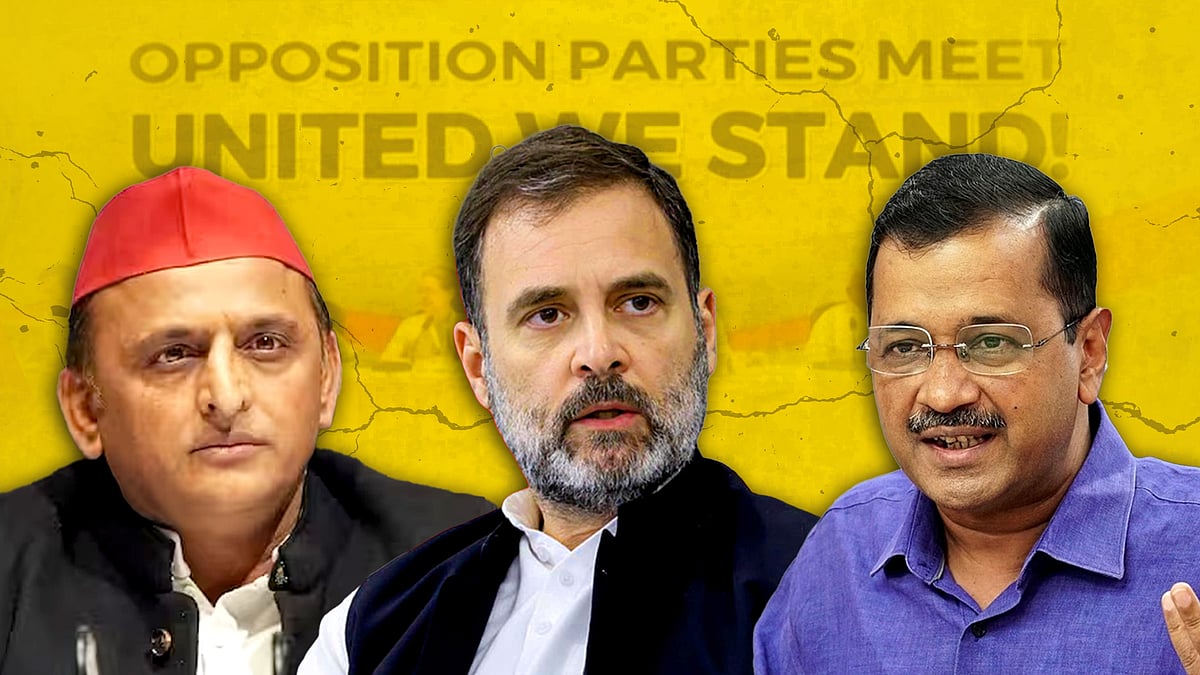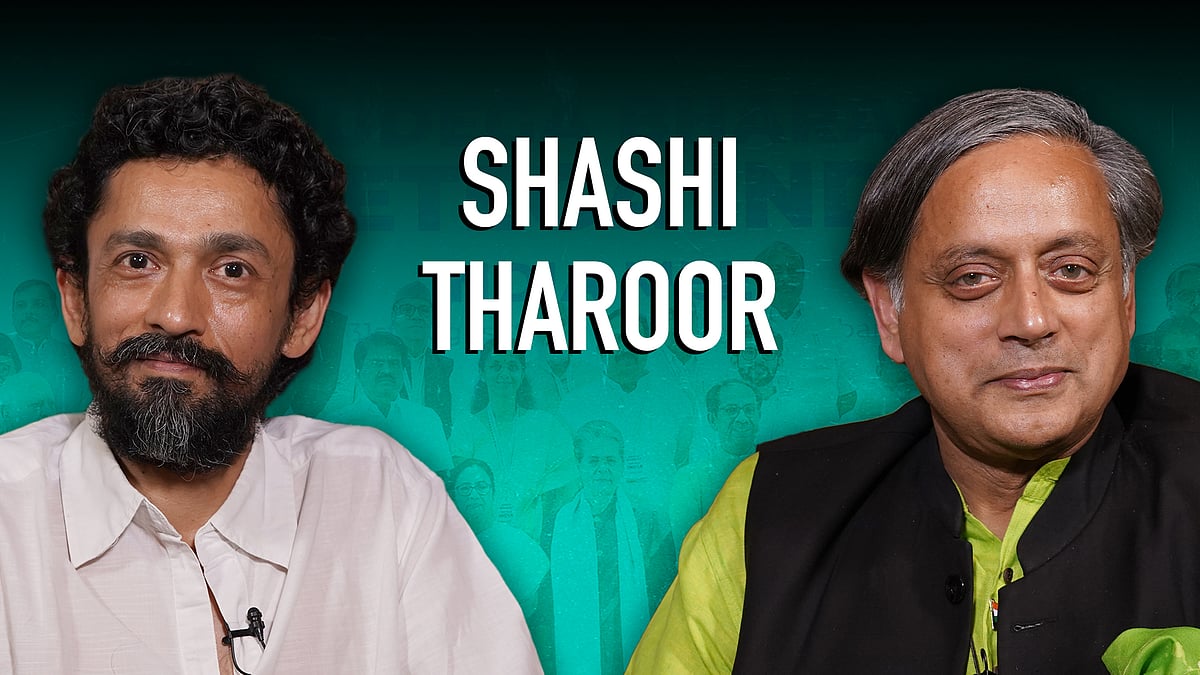As allies enter the decisive seat-sharing phase, will INDIA get its act together?
In an alliance of diverging interests, there are many rough edges to smoothen before 2024.
More than three months after their Mumbai meet, the leaders of the 28-party INDIA bloc met in Delhi this week to firm up the roadmap for their electoral alliance ahead of the 2024 polls.
The long gap between meets didn’t go down well with some partners. The intervening period saw assembly polls in five states. The Congress’s focus on them concerned some allies over loss of momentum – they felt the Congress’s preoccupation with the polls was delaying work on the national alliance. Moreover, the fact that the bloc partners were unable to form alliances for the assembly polls was seen as an early sign of divergence and conflicting interests within the alliance.
Amid these teething troubles, the immediate task during the latest meet was to put the alliance back on track for the electoral challenge next summer.
In many ways, the onus was on the Congress to address hiatus-induced anxieties. Besides its role as the pivot of the alliance, the party also had to offset the blame for slowing down alliance talks because of the state polls. More significantly, with only four months to go for the general election, the allies now have to grapple with the decisive phase of seat-sharing talks.
A day before the meet, Trinamool Congress head and West Bengal Chief Minister Mamata Banerjee had pitched the urgency to finalise a seat-sharing formula soon. There are indications the bloc would like to have a broader agreement on the formula by December 31, before specific details are worked out. To prepare for the wide-ranging parleys and negotiations, Congress president Mallikarjun Kharge constituted a five-member national alliance committee of the party to navigate through the process. In pitching its role as the prime occupant of the national challenger space against the central NDA government, the Congress reckons that the coming weeks will need a deft tightrope walk to steer the alliance and look after its key role in it.
The Congress will be keen to recalibrate its approach during seat-sharing negotiations with regional parties and others aspiring to extend their foothold in the national space. Additionally, it would have to strike pacts with Left parties. The party will also be keen to get the timing right in weighing in on the leadership question.
A slew of factors will shape the adjustments that the Congress would be willing to make and the turf it would like to protect for itself. When it comes to these decisions, some may be more decisive than the rest.
First, the Congress would have had more elbow-room and verve in seat-sharing talks if it had won two of three Hindi heartland states in the recent polls. That didn’t happen; it had to console itself with one win in the mid-sized state of Telangana.
Even if we delink the electoral behaviour in state polls from that of national polls, the results will impact the Congress’s weight in seat-sharing talks. A better showing would have boosted its position in the alliance. Perhaps that’s why the party delayed the talks. It will now have to more carefully assess the accommodation of regional parties, and see if there can be a tactful application of one common candidate for the alliance in each constituency.
Second, the code of accommodation and local dynamics may still pose a challenge for the party’s top brass in negotiating the sharing of seats. Some media reports suggest the TMC wanted to leave 300 seats for the Congress and the party could endorse allies in remaining states, like Uttar Pradesh, West Bengal, Punjab and Delhi.
But this is easier said than done. Bloc allies had a taste of this in the assembly polls when the Congress and Samajwadi Party couldn’t work out a seat pact and there was a spat between their leaders too. Additionally, state units and workers may find it difficult to forego their chances and make space for new allies who would have otherwise been their rivals. This will be less tricky in states where the Congress is no longer a formidable force. But take Kerala, where the Congress is the key rival, or Punjab and Delhi, where its local units show no signs of burying the hatchet with the Aam Aadmi Party.
Third, it wasn’t surprising to see Kharge cold-shoulder the TMC and AAP’s idea to pitch him, as a Dalit leader, as the alliance’s prime ministerial face against Modi. From the start, the Congress has avoided talks on leadership. This is primarily in an effort to not repel potential allies by claiming larger shares in power equations if the alliance wins a poll.
The other factor could be tactical and comes across as defensive, even though it has its use in electoral combat. The alliance is duly wary of the BJP-led campaign, juxtaposing Modi’s appeal against any leader the opposition combine may project. The coalition may reckon that such a match-up will play into the hands of the BJP campaign.
Besides these factors, the Congress might see the proposal as ill-timed and diversionary. The pitching of a non-Gandhi name may be seen as a subtext to messaging by other allies within the bloc – of a mistrust of the de facto high command of the party. Anyway, even the evocation of Dalit identity to pitch Kharge may be employed more as a post-poll card to settle rival claims on leadership within the alliance and then as a campaign strategy. As all leading parties now offer space for Dalit interest advocacy and representation, the leadership would be alert to the assessment that the prime ministerial face – should they opt for one – must have national appeal across the electorate. It shouldn’t merely be seen as the symbolic figure of a social group.
The coming weeks will see INDIA bloc partners trying to smoothen rough edges. The manner in which the Congress navigates dynamics of concessions and claims may define the alliance’s trajectory in 2024. In some ways, the interplay of converging and diverging interests within the bloc will shape the contours of bipolarity in the 2024 battle of alliances.
 State polls expose cracks in INDIA bloc. Will the drift dampen national alliance?
State polls expose cracks in INDIA bloc. Will the drift dampen national alliance? NL Interview: Shashi Tharoor on Women’s Reservation Bill, parliamentary affairs, INDIA alliance
NL Interview: Shashi Tharoor on Women’s Reservation Bill, parliamentary affairs, INDIA alliance